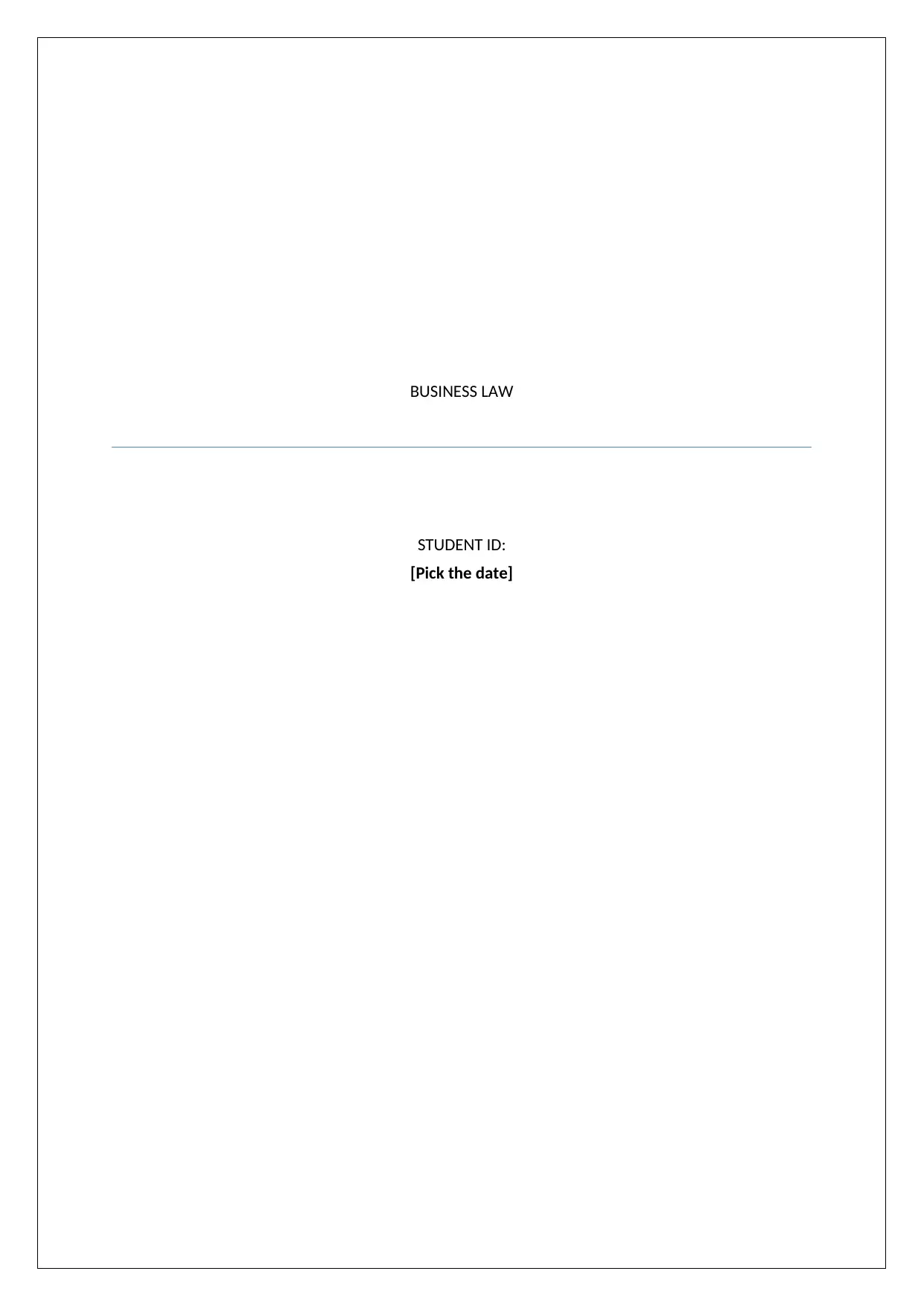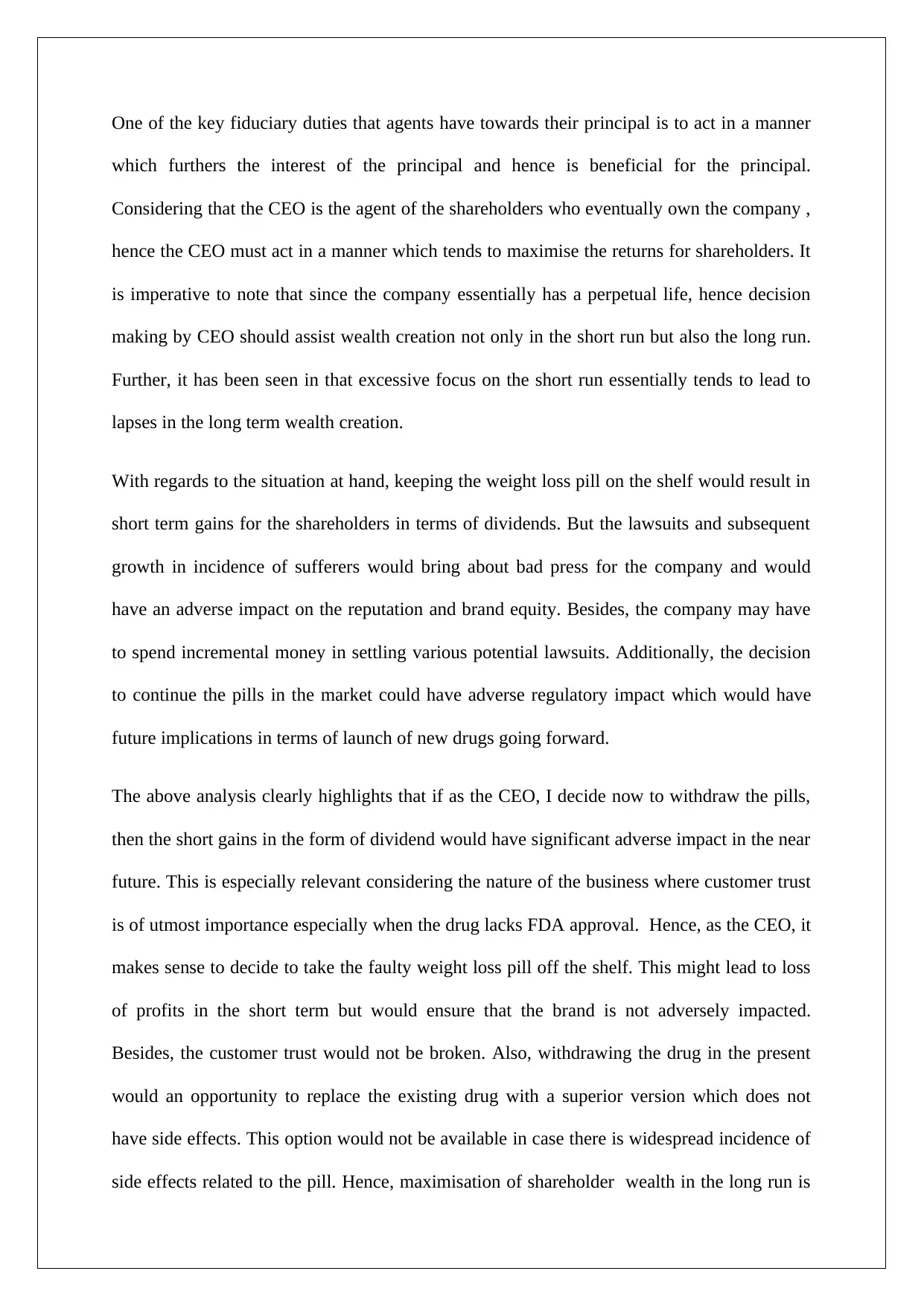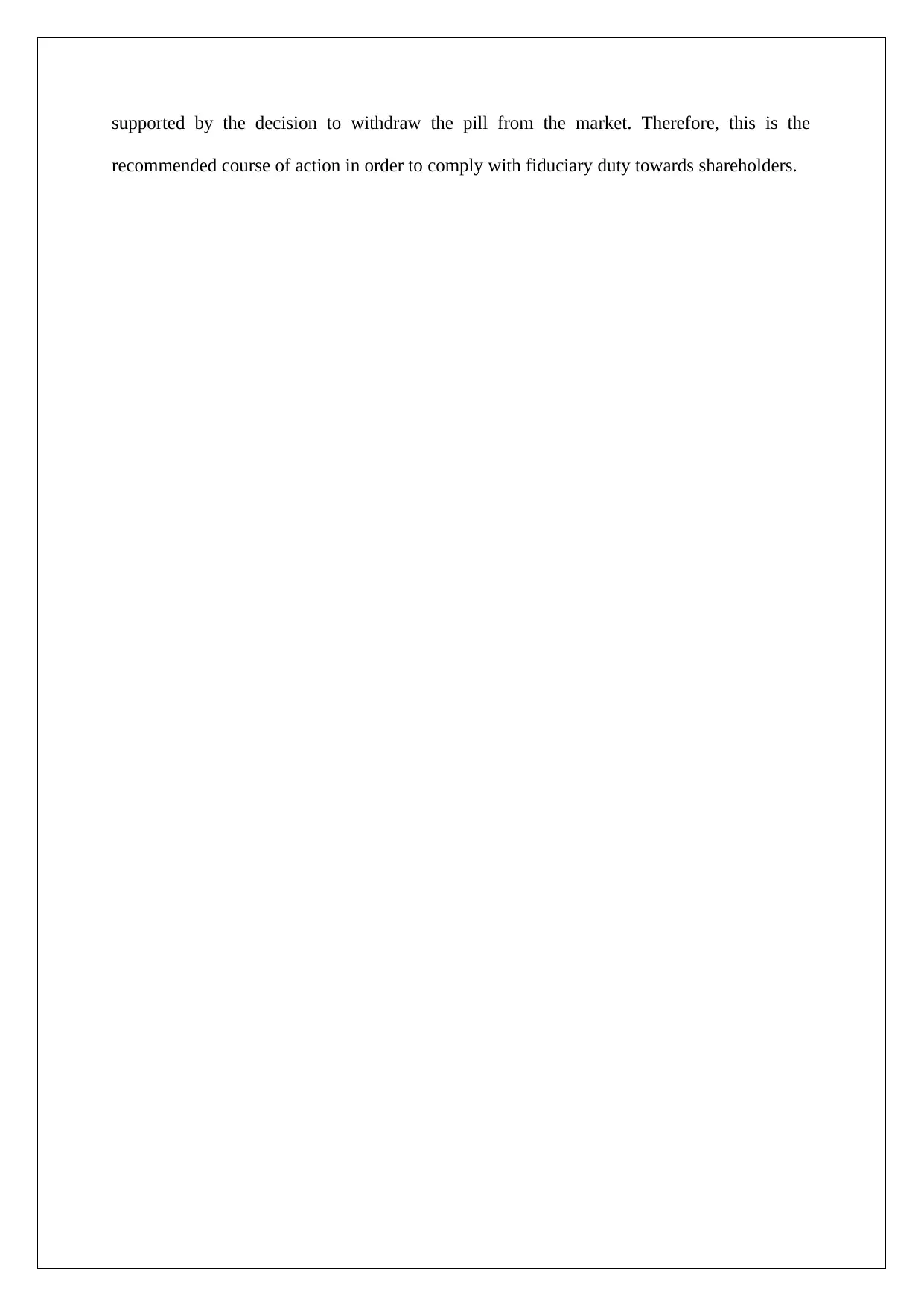Business Law: Fiduciary Duty Analysis of CEO's Pill Decision
VerifiedAdded on 2023/04/22
|3
|453
|250
Case Study
AI Summary
This case study explores the fiduciary duty of a CEO towards shareholders, particularly in the context of deciding whether to withdraw a potentially harmful weight loss pill from the market. The analysis considers both short-term financial gains from continued sales and the long-term implications of potential lawsuits, reputational damage, and regulatory repercussions. It argues that while keeping the pill on the market might yield immediate profits, the long-term costs associated with negative publicity, legal settlements, and damage to brand equity would outweigh these gains. The study concludes that withdrawing the pill, though potentially leading to short-term losses, is the more prudent decision as it protects the company's reputation, maintains customer trust, and allows for the development of a safer alternative, ultimately maximizing shareholder wealth in the long run. Therefore, the recommended course of action aligns with the CEO's fiduciary duty to act in the best interests of the shareholders.
1 out of 3






![[object Object]](/_next/static/media/star-bottom.7253800d.svg)